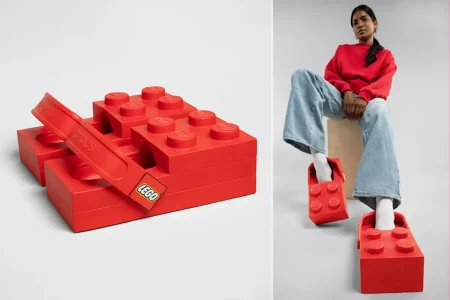The Unforeseen Allergen in a Frozen Treat: A Recall of My Mochi Peach Mango Sorbet
The seemingly innocent indulgence of a frozen dessert took an unexpected turn when My Mochi, a popular brand of ice cream treats, issued a recall for their peach mango sorbet. The recall, announced by the Food and Drug Administration (FDA), stemmed from the presence of an undeclared allergen – pasteurized cooked egg white. This ingredient, while used in the production process, was inadvertently omitted from the product label, posing a potential health risk to individuals with egg allergies. This oversight, though seemingly minor, underscored the crucial importance of accurate food labeling, especially for those with specific dietary restrictions and allergies. The recall encompassed 1,350 cases of the sorbet, distributed across various retail giants like Target and Wegmans, highlighting the widespread reach of the product and the potential impact of the undeclared allergen.
The Significance of Egg Allergies and the Potential for Adverse Reactions
Egg allergies, particularly prevalent among children, can manifest in a range of symptoms, from mild discomfort to life-threatening reactions. The accidental ingestion of egg proteins by an allergic individual can trigger a cascade of immunological responses, leading to a variety of symptoms. These can include skin manifestations like rashes, hives, and inflammation, respiratory issues such as congestion and asthma-like symptoms, and gastrointestinal distress such as stomach cramps, nausea, and vomiting. In more severe cases, egg ingestion can lead to anaphylaxis, a life-threatening allergic reaction characterized by constricted airways, a rapid pulse, abdominal pain, and shock. This severe reaction requires immediate medical attention and can be fatal if not addressed promptly. The omission of egg white from the ingredient list of My Mochi’s peach mango sorbet thus posed a significant health risk to unsuspecting consumers with egg allergies.
The Scope of the Recall and My Mochi’s Response
The recalled My Mochi peach mango sorbet was widely distributed across the United States, available in the freezer aisles of various supermarkets, including the prominent New York-based grocer Wegmans, and approximately 100 Target stores nationwide. This extensive distribution network amplified the importance of the recall, ensuring that consumers across a wide geographic area were informed of the potential hazard. While a My Mochi spokesperson characterized the recall as "really small" relative to their overall production, the impact on individuals with egg allergies remained significant. The recall served as a reminder of the importance of vigilance in food production and labeling, even for seemingly minor ingredients.
Identifying the Recalled Product and Taking Action
Consumers were advised to carefully examine their purchased My Mochi peach mango sorbet to determine if it fell under the recall. The recalled product was sold in 7.5-ounce boxes containing six individual servings and carried the lot numbers 337-24 and 341-24. This specific identification information allowed consumers to readily distinguish the recalled product from other My Mochi offerings. Individuals who had purchased the recalled sorbet were instructed to return it to the point of purchase for a full refund. This prompt action by My Mochi aimed to mitigate the risk to consumers and demonstrate their commitment to product safety and consumer well-being.
The Importance of Transparency and Accurate Food Labeling
The My Mochi sorbet recall underscores the vital importance of transparency and accuracy in food labeling. For individuals managing food allergies, the ingredient list on a product label serves as a critical guide to safe consumption. The omission of even a seemingly minor ingredient, such as pasteurized cooked egg white, can have serious consequences for those with specific allergies. Accurate labeling enables individuals to make informed choices about the foods they consume, protecting themselves from potential allergic reactions. Food manufacturers bear the responsibility of ensuring that their product labels accurately reflect all ingredients, providing consumers with the information they need to make safe and informed decisions.
Preventing Future Incidents: Strengthening Food Safety Practices
The My Mochi incident serves as a valuable lesson for the food industry, highlighting the need for stringent quality control measures and meticulous attention to detail in product labeling. Implementing robust quality assurance processes throughout the production and packaging stages can help prevent similar incidents from occurring. Regularly reviewing and updating ingredient lists, coupled with comprehensive allergen testing, are crucial steps in ensuring the safety of food products for all consumers. By prioritizing transparency and accuracy in food labeling, manufacturers can build consumer trust and safeguard the health and well-being of individuals with food allergies. This incident emphasizes the critical role of accurate food labeling in protecting public health and reinforces the need for continuous improvement in food safety practices.















